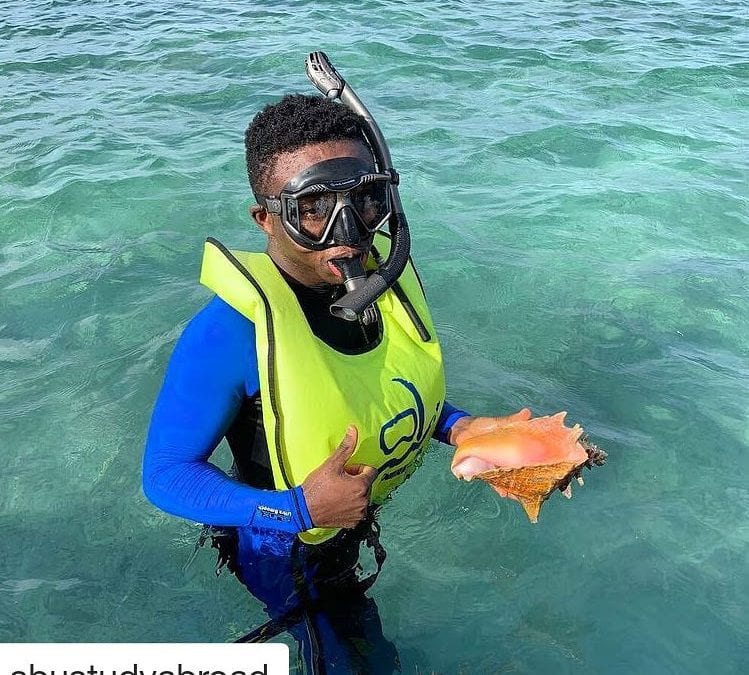Undergraduate Paul Boasiako Reflects on his Study Abroad experiences in MAR 388 – Tropical Marine Ecology:
 Traveling to a new country, exploring a different culture and venturing outside my comfort zone were milestones I never imagined myself accomplishing some few months ago. Why would I want to willingly leave such a beautiful city like New York to go study elsewhere? How can I go a day without a high-speed WiFi network? However, after spending a few weeks in Jamaica, I can honestly say that studying abroad was one of the best decisions I ever made in my life. For the first time in many years, I felt connected back to my old way of life in Ghana and Mother Nature.
Traveling to a new country, exploring a different culture and venturing outside my comfort zone were milestones I never imagined myself accomplishing some few months ago. Why would I want to willingly leave such a beautiful city like New York to go study elsewhere? How can I go a day without a high-speed WiFi network? However, after spending a few weeks in Jamaica, I can honestly say that studying abroad was one of the best decisions I ever made in my life. For the first time in many years, I felt connected back to my old way of life in Ghana and Mother Nature.
My study abroad class was marine biology field-oriented class which focused on studying the Jamaican Coral reef, exploring several anthropogenic and natural factors that affect the reef, Coral reef the impacts on the Jamaica socio-economic and tourism sector and the negative effects of invasive species like lionfish on the ecology of the reef. Most of my studies took place on the open Caribbean Sea and wet lab facilities in the University of West Indies, Jamaica. My classmate and I snorkeled and dove at several locations and depth to explore the different distribution coral types, marine the vertebrates and invertebrates. We also had the opportunity to assist in faculty research using transect methods and extensive statistical methods to explain findings.
Getting the privilege to study in Jamaica has shaped my perspective and life in several ways. Apart from the rich education information that I learned about the importance of healthy coral reef structure, there is one skilled I learned that will forever stick with me. As a person who grew up in the warm tropical coast of Ghana, swimming had always been a challenge that I struggled to learn and perfect but studying in Jamaica helped me overcome this obstacle with support from my classmates and professors. There were multiple occasions that my fear of drowning discouraged me from jumping into the sea, but the support from my classmates and professors encouraged and emboldened me to take my first paddle. As a result, I was able to experience unbelievable and beautiful scenes of different colorful corals, sponges, anemones, fishes etc. Most importantly, I had the opportunity to pet and swim with an upside-down jellyfish. The moral of this experience was not only learning to swim, but the importance of having the right support group in any crisis, confidence in oneself, and exploring new things outside one’s comfort zone. Moreover, I was able to see the impacts human activities on the corals, fish diversity and coral bleaching.

First day snorkeling and finding an upside jelly fish (Cassiopea frondosa). The jelly fish has a symbiotic relationship with an alga called zoozanthellae. These algae undergo photosynthesis and supply the jelly fish with nutrients whereas the jelly fish provides habitat and protection for the zoozanthellae.
In addition, studying abroad opened my eyes to the world around me. This is a lesson that I don’t believe I could have learned in the classroom. It required exposing myself to a new situation filled with new people and new experiences. I am so grateful for the opportunity I had. If there were one piece of advice I can offer to other students considering studying abroad, it would be to GO! Go out into the world and experience life. Find someplace that excites you. It is 100% worth it. Study abroad was one of the most formative experiences, and I know I will carry the lessons I learned in Jamaica with me for the rest of my life.
Read more about Paul’s trip on the Tropical Marine Ecology blog!





You must be logged in to post a comment.